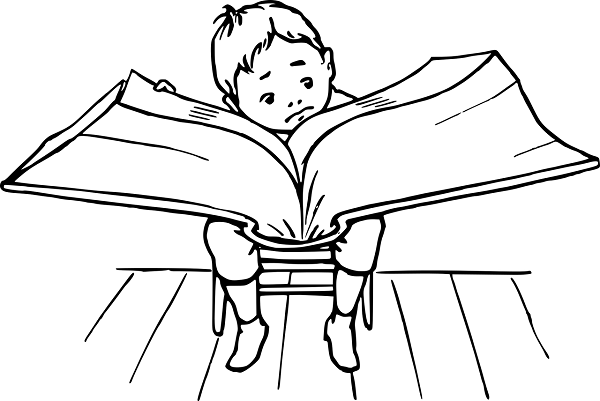Getting into a master’s degree program in reading and literacy, which happens to be one of the 50 highest paying master’s degrees, isn’t easy. Your acceptance into these graduate programs depends on more than grades and standardized test scores. Most master’s in reading and literacy programs expect students to submit some sort of personal statement, essay or autobiography as part of their application package. This personal essay component gives you the chance to articulate in writing why you should be accepted into the program, including your teaching experience, your beliefs about literacy instruction best practices and why you want to focus your career on teaching reading and writing.
IMAGE SOURCE: Pixabay, public domain
Your Experience and Professional Credentials
An important part of most personal statements for application to a master’s in reading and literacy program is an overview of your experience and credentials. When describing your professional experience, you don’t want to just copy and paste what’s in your resumé. You want to highlight what makes your experience special and tell stories that demonstrate your worthiness for the program.
This may include, for example, instances where you helped students who were having trouble learning to read and write or reading and writing at the appropriate grade level. You should concisely but thoroughly describe the problem and how you worked to solve it.
Although most master’s in literacy programs are intended for practicing educators, some will accept candidates in other fields who are looking to switch careers. In this instance, your personal statement is particularly important, because it makes the case for why your experience and training in another field is an asset and how you will use it as a literacy teacher.
Even for experienced teachers who want to dedicate their careers to teaching reading and writing, crafting the perfect personal statement can be intimidating. Instead of thinking of this requirement as an obligation, look at it as an opportunity to make your voice heard.
Your Knowledge of Best Practices in Literacy Instruction
In your classroom, how do you approach reading and writing instruction? What strategies have you found to be most effective in educating the class as a whole, and what interventions have worked best, in your experience, to help bring struggling readers and writers up to speed? Admission officers for a master’s degree program in literacy and reading will want to see that you have given a lot of thought to literacy instruction methods and that you have a strong foundation to build on in your graduate work.
If your answer is that you just go by the book, or you refer struggling students to a reading specialist, then you may not be ready to move forward with graduate studies in this field. Your master’s education in literacy will be more systematic and evidence-based than what you’re likely already doing in the classroom. Prospective graduate students should at least have begun thinking about different methods of instruction and their effectiveness by the time they apply for the program.
Applicants aren’t expected to be experts on literacy instruction already – if they were, they wouldn’t be applying to the program. However, a school promotes certain teaching methods and wants to recruit students whose views of best practices fit those methods.
Why You Want to Be a Reading Specialist and How You Will Use Certification
Master’s in literacy programs want their applicants to make a difference and be passionate about teaching students to read and write. It’s not enough, for this specialized program, to just want to maintain your teaching license or qualify for a salary boost for having a master’s degree. Admissions officers want to know how you plan to use your reading and literacy education and presumed reading specialist certification in your career.
This brings you to questions such as why you want to work as a reading specialist. Do you love reading and books with a passion? Do you feel that written self-expression is crucial to the children you teach? Maybe you can draw on personal stories and experiences, like the challenges faced by a relative who never learned to read and write or a time when writing helped you cope with difficult feelings. Perhaps you, or someone you know, struggled with reading and writing as a child and saw firsthand the value a good reading specialist can bring to a child’s life. Although you shouldn’t get too personal or overshare private information in your essay, your personal statement should be detailed and specific enough to leave an impression in admissions officers’ minds.
Master’s degrees often include some form of research component as well as practical methods of instruction. If you have a strong interest in an area of reading and literacy research, you should emphasize that interest and what specifically you would like to study.
Additional Resources
What Traits Does an Admissions Office Look for in Candidates for Reading and Literacy Master’s?
Do I Need to Have Teaching Experience Before Entering a Program for Reading and Literacy?
What Do You Typically Study in a Master’s Program for Reading and Literacy?

